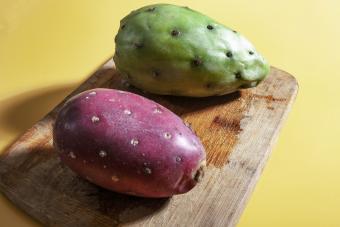
Honey bee raising can be an enjoyable and rewarding activity for the home gardener. Not only will you have the benefit of pollination for your garden, but you will have delicious honey as an added bonus! To learn more about this interesting hobby, LoveToKnow had the opportunity to interview Chief Apiary Inspector for the Florida Department of Agriculture, Jerry Hayes. Among his accomplishments, Mr. Hayes is also the President of the Apiary Inspectors of America, the author of The Classroom: Beekeeping Questions and Answers and a monthly questions and answers column in the American Bee Journal magazine. In addition, he has authored and co-authored many apicultural research papers.
Interview with Bee Expert
How Do Bees Help Gardeners?
Honey bees and other pollinators are the vital link in the process of taking pollen (male element) from one flower to the receptive stigma (female element) of another flower so that pollination, and then fertilization, takes place. Without this transfer, fruits, nuts, vegetables, seeds and berries cannot develop with the resultant loss of food for humans, animals and plant diversity that keeps us alive. This is all pretty important, and it all starts in the backyard.
How Does a Home Gardener Get Started Honey Bee Raising?
Get started the same way that you learned to be a proficient gardener; get books, magazines, DVDs, a mentor. Take a class or talk to my office (in Florida) on how we can assist by assigning one of our Apiary Inspectors to help initially. Then they will register the beekeepers and inspect the colony when it is up and going. (''Editors note: A list of beekeeping organizations can be found here.)
Are There any Laws or Licenses Required?
In Florida (as in most states), we register the beekeeper for a nominal charge and then inspect the colonies for honey bee pests, predators and disease challenges. We can then advise on management techniques to maintain healthy vigorous colonies.
What Equipment is Needed?
You can Google up any of the major beekeeping supply companies such as Dadant, Brushy Mountain, Mann Lake, etc. and order a "beginner's kit" for between $200 and $300.
How Do I Get Bees?
There are companies that supply package bees, which is a shoe box sized container of honey bees and a queen that is used to start a new colony. Because of the spread of the dangerous African bee, which looks exactly like the more gentle honey bees in managed colonies, in Florida, never take wild honey bee colonies from the environment.
Can Bee Products be Sold?
Most new beekeepers make enough honey to consume and to share with family and friends. If they have enough at some time in the future to sell, there are some labeling requirements that should be met.
How are Honey Bees Fed?
Honey bees can fly in a two and a half mile radius of their colony and in most cases there will be plenty of flowers to supply their food needs in this vast area.
How Do I Protect Them in the Winter?
We have no winter in Florida, but in other areas, leaving 50 to 60 pounds of honey on the colony and being sure they are healthy is all that is necessary. Cold doesn't kill honey bees, starvation does.
How Can I Learn More?
Call your county extension agent or the Entomology Department of the State Land Grant Users for a list of local, regional and state Beekeepers Associations.
Can You Explain the Decline in the Honey Bee Population?
Having been a member of the Colony Collapse Disorder Working Group since the beginning, we simply do not know. It seems to be a combination of toxins in the environment, pathogens and the general stress of being a valuable insect in a world that wants to kill all insects with a wide variety of chemicals.
How Can Gardeners Help Honey Bees?
Gardeners can plant flowers that are attractive to, not only honey bees, but other pollinators as well, such as bumble bees, solitary bees, butterflies, etc.
What Flowers Do Honey Bees Like?
Flowers that produce lots of nectar and pollen are the most beneficial to pollinators. A search on "honey plants" will get you a regional menu of helpful plants.
Anything Else to Add?
Honey bees are known by their name for partnering with flowering plants and creating honey. However, honey is a byproduct of pollination. Without honey bees we lose approximately 30 percent of the food we eat everyday. Fruits, vegetables, nuts and berries for us and wildlife are dependent on honey bees to transfer the pollen that then will fertilize a seed and direct the plant to produce these foods.
We are all inter-related. When I speak to elementary school children about honey bees I ask them how honey bees make ice cream. They do not know - which is good for my presentations. Honey bees are used to pollinate a crop called alfalfa which is a food for dairy cows, which produce the milk that makes ice cream. With our population growing, we need more health foods, not less.
Conclusion
Honey bee raising is not only a rewarding hobby, but it can also be very helpful for the environment. LoveToKnow would like to thank Jerry Hayes for taking the time for this informative interview. Check out the references above and you will be on your way to successful honey bee raising.







